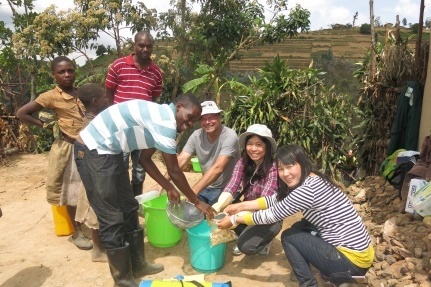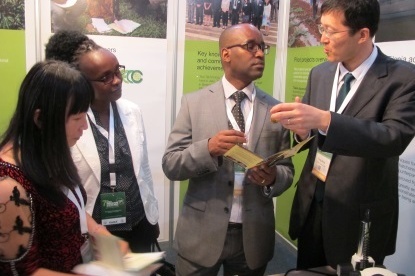Successful AgriTT programme generates lessons for future trilateral cooperation and agriculture technology transfer
The award-winning DFID funded AgriTT programme implemented by Landell Mills from 2013-2017 facilitated the sharing of the successful experience of Chinese agricultural development with low-income countries, such as Malawi and Uganda, in order to improve agricultural productivity and food security.
Independent research conducted by the International Institute of Environment and Development (IIED) analyses trilateral development cooperation under AgriTT as a model to promote learning and accelerate agricultural technology transfer. The study finds achievements in the technology transfer carried out by AgriTT and outlines key recommendations for future trilateral cooperation and agriculture technology transfer.
The research focuses on two pilot projects: one being cassava value chain development in Uganda and the other being tilapia production in Malawi. Both projects introduced Chinese technologies, specially adapted through the trilateral cooperation model to suit the local environment.
The study finds:
“AgriTT was an ambitious project operating within a complex environment. While agricultural technology transfer is always a challenging process, requiring patience, flexibility and time, the challenges of the AgriTT pilots were particularly daunting given the ambitious project design, the limited timeframe, and the innovative nature of both the partnerships and the holistic value-chain approach. Despite this, informants reflected that the programme did largely play to the distinct strengths of the UK, China, and Uganda and Malawi, allowing it to transfer appropriate agriculture technology for key points in the value chain in uniquely effective ways.”
AgriTT has carved out a unique role for the private sector within a trilateral aid programme. Lila Buckley, IIED author, commented, “The project’s achievements included the development of strong networks amongst those involved, suggesting that mutual learning and exchange will continue among China, the UK and the two African countries. It has transformed the way in which cassava and tilapia are perceived in the pilot countries, opening up previously unrealised commercialisation possibilities.”
Shan Mitra, Senior Economic Adviser for the UK Department for International Development (DFID), China observed, “AgriTT genuinely seems to have turned out to be a successful programme, not only in delivering development results on the ground but in generating lessons on trilateral cooperation”.
The IIED study finds that AgriTT provides important lessons for trilateral cooperation in agriculture on how to engage, how long to engage, who to engage with and how to ensure sustainability.
Read more about the AgriTT programme on the links below.





